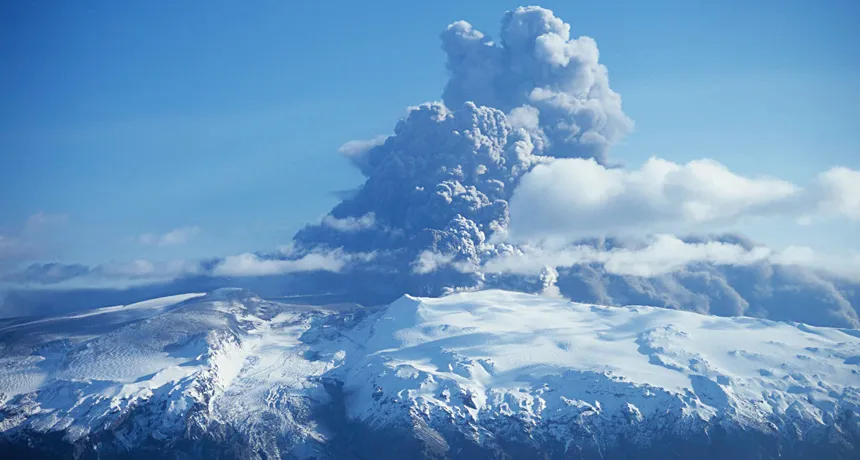Natural aerosols confound climate predictions
Researchers can’t say how much cooling these floating particles cause

UNCERTAIN PREDICTIONS Aerosols like those that result from eruptions of volcanoes such as Iceland’s Eyjafjallajökull can cool climate, but scientists can’t say by how much. A new study suggests natural aerosols add more uncertainty to climate predictions than researchers realized.
U.S. Geological Survey and Oddur Sigurðsson/Iceland Meteorological Office







